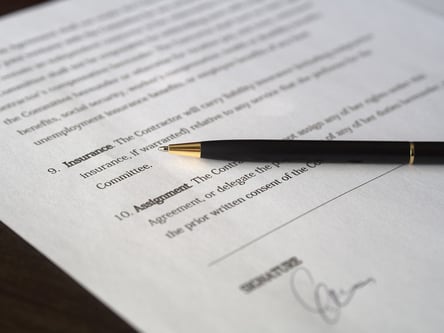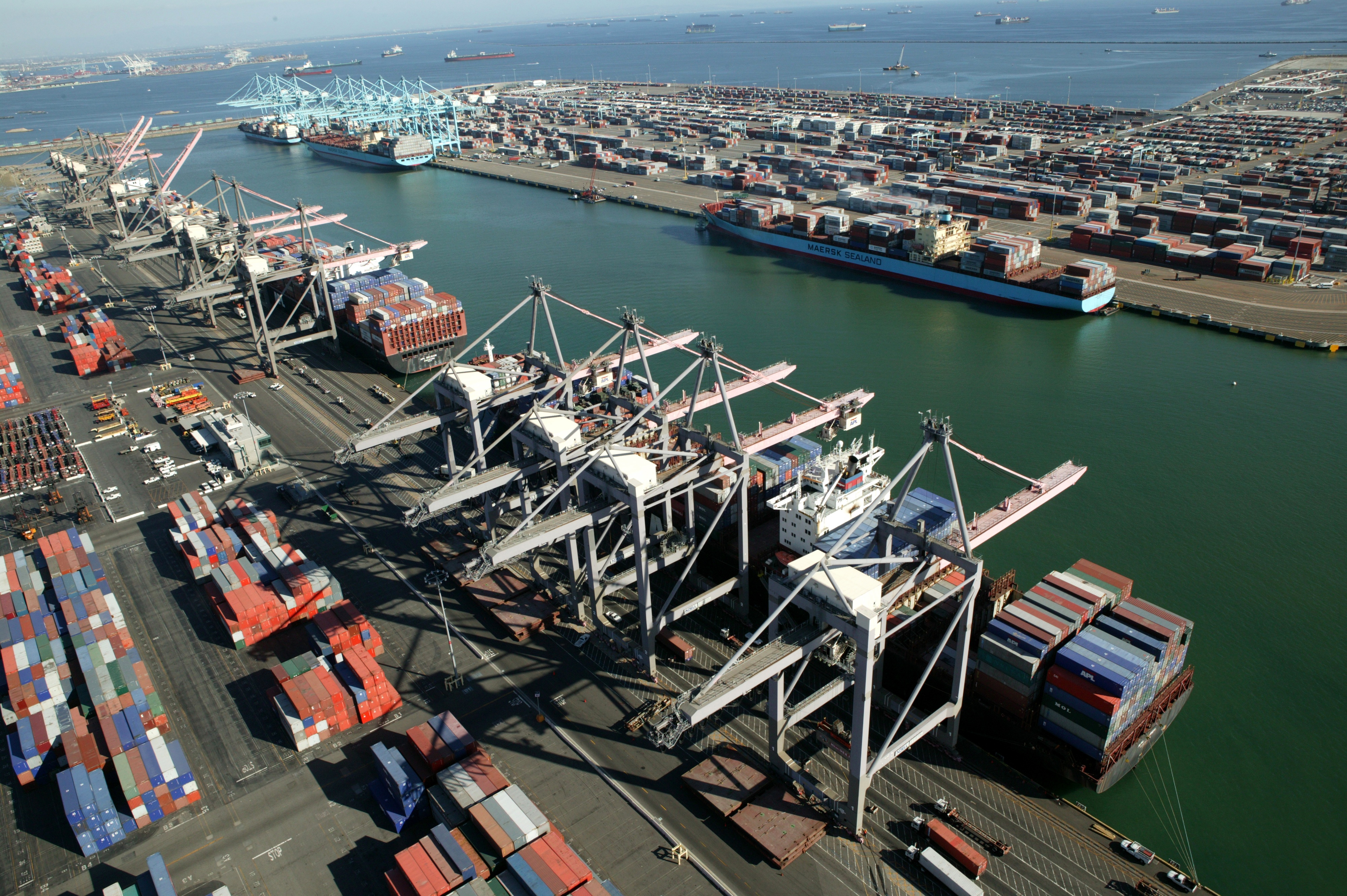While the supply chain benefits of working with a third-party logistics (3PL) provider are commonly understood, some companies still feel uncertainty when negotiating the warehousing contract at the outset. In this article, we’ll examine some of the key contract considerations and provide helpful tips for getting warehousing relationships off on the right foot.
3PL warehousing contract considerations
 The vast majority of 3PL warehousing contracts are based on the recommended contract terms set forth by the International Warehouse and Logistics Association (IWLA). While the terms are meant to protect the interests of IWLA members (i.e., 3PLs and warehousing providers), they are generally regarded as fair and reasonable by clients, as well. Here is a standard warehousing contract template from the IWLA.
The vast majority of 3PL warehousing contracts are based on the recommended contract terms set forth by the International Warehouse and Logistics Association (IWLA). While the terms are meant to protect the interests of IWLA members (i.e., 3PLs and warehousing providers), they are generally regarded as fair and reasonable by clients, as well. Here is a standard warehousing contract template from the IWLA.
Importantly, many 3PL contract provisions are negotiable – but some are more negotiable than others.
The following are two common issues that clients should be aware of during the contract negotiation process.
- Decision makers don’t always understand the relationship between rates and 3PL services, and may not take the time to fully do so. This can derail a relationship if issues arise down the road. It’s always better to work through issues candidly at the front end of a relationship (“If this ever happens, then what….?) rather than dealing with difficult issues for the first time when they occur and tensions are high.
- Clients may pass the contract through their attorney, who may not understand the context or nuances of the 3PL services that are required as well as the client does. The contract can come back with 30 redlined comments that can trigger weeks of time-consuming discussions. That doesn’t mean that an attorney review doesn’t have value, but that perspective should be balanced against the realities of the business needs.
Key warehousing contract provisions
Warehouse Liens
A lien protects a 3PL from non-payment of invoices. It says simply that the 3PL can sell the inventory under its care if the client becomes insolvent and is unable to pay. A warehouse will protect its rights to the inventory in the same way banks protect their rights to sufficient collateral to cover an outstanding loan. In general, this clause is not an issue, particularly if the client’s CFO is involved.
In some cases, there’s already security interest in the client’s product with a bank. When this occurs, the 3PL provider and client can work with the creditor to execute a bailee letter, which stipulates that – in the event of non-payment – the bank will step into the obligations and rights of the client.
Limits of insurance liability
3PL insurance is primarily responsible for covering its people, equipment and buildings. 3PL clients are primarily responsible for insuring their products. In most cases, the 3PL client will simply add a rider to its current insurance policy which lists the 3PL’s warehouse as a storage facility for the insured products.
Warehousemen Legal Liability Insurance is carried by every responsible 3PL warehousing company and stipulates that the 3PL provider is responsible for the safe storage of goods and must provide “reasonable care” for those goods while in its care. If the provider does not provide reasonable care and its negligence results in loss or damage to product, the warehouse provider’s insurance company covers losses to a contractually-agreed-upon extent.
Importantly, all warehouse contracts substantially limit liability, and when products are especially valuable, that liability level may be far below the actual cost of the goods. In this event, the 3PL insurance might not fully cover a client’s loss, even if the warehouse were 100% negligent. It is important that clients assure that they are fully insured against loss, however it’s caused.
In addition to Warehousemen Legal Liability Insurance, other types of insurance that 3PLs will have include Commercial General Liability insurance, as well as Employers Liability insurance and Workers’ Compensation Insurance. Importantly, the 3PL’s Workers’ Compensation Insurance covers its employees even if they are injured handling a client’s products.
Terms of agreement
3PL clients typically agree to 1-to-3-year contracts, while larger companies may commit to 5-to-7-year terms. In the old days, warehousing contracts would allow for mutual 30 or 90-day notice of termination. Today, however, neither party wants such little notice due to the high costs and supply chain impact involved. It takes time and money for 3PLs to fill warehousing space, and it costs clients even more to move inventory. Both parties will typically negotiate termination terms that act in the interests of all involved.
Warehouse contract negotiation
The keys to a good 3PL contract negotiation process are mutual respect and candid discussions up front about the actual scope of the business, and what each party wants from the contract, and the relationship. 3PL warehousing contracts work best when they are reflective of a mutually beneficial partnership, where neither party benefits nor takes on risks to an excessive degree. Uneven relationships are rarely sustainable if one party of the other feels that they are not getting value commensurate with their cost and commitment.
Tips for mutually beneficial warehousing contracts
The following tips can go a long way in ensuring that both client and 3PL are satisfied with the details of the warehousing contract.
- Both parties should explicitly define expectations at the outset so that each understands what each needs and expects from the other. This includes agreeing to implementation timelines and can also include client forecasting for future growth, so that both parties understand what the relationship looks like now and will likely look like in the future. This way, the contract can act as a roadmap to a long-term solution for the client.
- Terms and conditions (such as in the IWLA example above) are fairly standard. Rates for specific services, however, can allow for collaboration and be negotiated by both parties, recognizing that their business will evolve over time, and that rate structure should support both now and later.
- The importance of face-to-face (or Zoom-to-Zoom) cannot be overstated. A conversation in which decision makers iron out contractual details or clarify items can save days or even weeks of back and forth, as well as avoiding a misunderstanding down the road.
- 3PLs are well versed in warehousing contracts. If a client is not familiar with a portion of the contract, a good 3PL should be able to clearly explain all that it entails frankly and comprehensively.
Contracts are cold, hard, legal documents. But ironically, the best contracts result from demonstrating some basic human traits during the negotiation process: honesty, fairness and good communication. At Weber Logistics, we go to great lengths to develop and maintain mutually beneficial partnerships that lead to long-lasting logistics solutions. To learn more about working with a 3PL as a true partner, contact Weber Logistics today.
Disclaimer: The materials available at this web site are for informational purposes only and not for the purpose of providing legal advice. You should contact your attorney to obtain advice with respect to any particular issue, question or problem.




 Capital Management
Capital Management